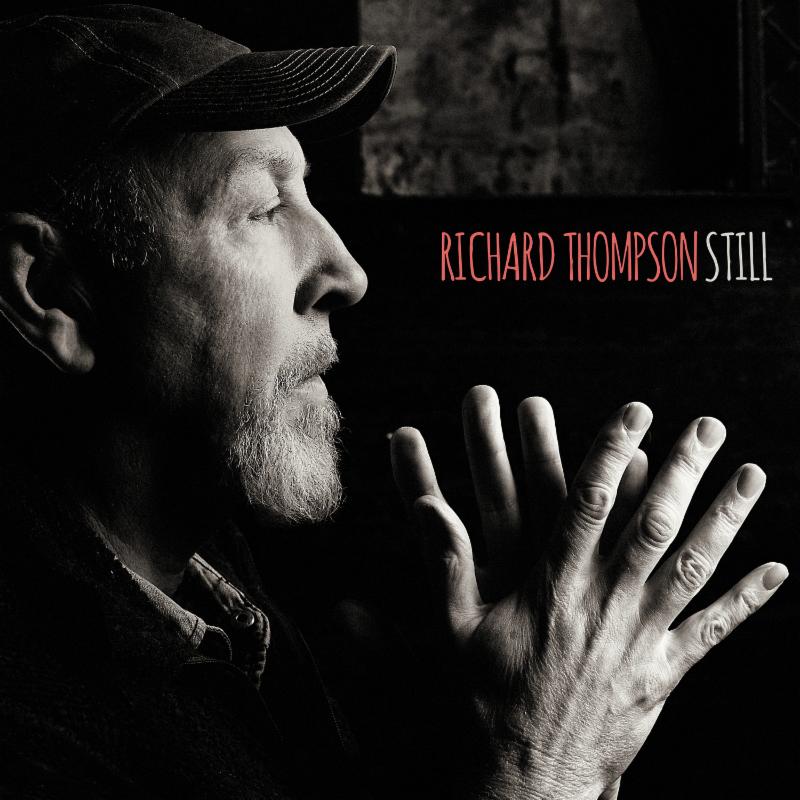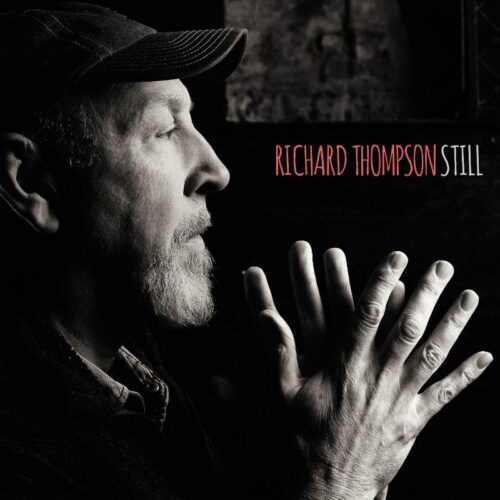With Mavis and ‘Pops’ Staples tucked cleverly in his production portfolio, Wilco’s Jeff Tweedy has forged a reputation for fresh embellishments of old legends. Nevertheless, at first glance, the pairing with Thompson seems slightly odd. Not that it is difficult to see musical similarities. Thompson’s guitar technique, often said to have influenced such diverse acts as Television and Pere Ubu, can surely be found within the more adventurous outings of the ever-changing Wilco, it’s just that it is difficult to glance the song-writing connection. Tweedy’s fragmented vocal attack verses the storytelling elements of the dour and brilliant Thompson. Perhaps Tweedy would bring comparatively youthful zest to the very idea of a new Richard Thompson album?
But no. This is curiously not the case. Not that this is, in any way, a disappointing album. On the contrary, it has ‘classic’ written all over it, but it is a classic that sits firmly in the Thompson tradition. As ever, it is an album chock-full of disaffected characters and, in places, you do feel as though you have met them before. The girl who inhabits the opening ‘She Never Could Resist A Winding Road’ seems awfully familiar to the hedonists to be found on the mighty ‘I Want To See The Bright Lights Tonight’. But ‘Winding Road’ is a paradoxical mix of the ultimate sadness of a transient lover and the romantic notion of always moving forward. Although Thompson states that he wrote it about a ‘real person’, you also sense that something of himself sits within that character. (Referencing his incongruous move to California, perhaps?)
‘Beatnik Walking’ is somewhat less ambiguous, a tale of Thompson’s time spent in Amsterdam, 22 years ago. While touring Holland, he returned night after night to the capital. As such the song offers a nice snapshot of Amsterdam life: sitting in bars reading a newspaper; dodging the cyclists; the gentile pastime of visiting art galleries. Quite why it has emerged after so long is anyone’s guess. Thematically, it holds no noticeable links with any other song on the album. However – I am guessing here – it is surely the only time Thompson has mentioned Rupert Murdoch in a song. It is not the only autobiographical song on Still, but it is the only song not haunted by shy and eerie figures. Take the openly disturbing ‘Josephine’, who appears scribbling her emotions desires on the wall while waiting for a lover who never returns.
‘All Buttoned Up’ is archetypal Thompson, a tale of an awkward, insular character who sadly suppresses his own raging desires. Thompson has always suggested a character lost to sexual repressed geekiness, a fact that, I have always sensed, tended to shield the true genius of his guitar playing from casual listeners. Never a hip young gun slinger, he isn’t endowed with the panache of a Beck or a young Clapton. Yet his gloriously understated guitar work floods his albums, discretely adding depth and flavour. This has never seemingly worried him at all. Until now. The track I refer to is the epic and closing ‘Guitar Heroes’, which openly depicts a young Thompson, sitting – no doubt – in his bedroom, soaking in and emulating such powerful influences as Scotty Moore, Les Paul, Hank Marvin and Chuck Berry.
"Well, I played until my fingers bled, I shut out all the voices but the voice in my head, now I stand on-stage and do my stuff, And maybe it’s good, but never good enough."
Oh such false modesty. ‘Guitar Heroes’ is a gargantuan and powerful evocation of the late 50s and a yearning to connect with raw, emotive rock & roll. The song visualises English seaside towns, fights in the dance-halls, fairgrounds and holiday camps and the surging back beat on which he longed to catch onto. Odd emotions from one of the founders of Fairport Convention. But this is a song that will stick hard and heavy in the Thompson canon. Maybe even recasting him – at last- as bona fide guitar hero. It is pure teenage dream, pure winkle pickered downbeat longing, fish & chips in Mablethorpe, running with the rockers and the mods.
Therein lies the rub. As always, with Thompson and, despite his 20 years under the LA palm trees, his music and lyrics are soaked in Englishness. ‘I Want to See The Bright Lights Tonight’ is pure Camden Town in the early 70, rolling home drunk after nights at The Dublin Castle. ‘Mock Tudor’ is a stab at suburban gentrification. ‘Guitar Heroes’ edges close to his greatest moment, ‘1952 Vincent Black Lightening’. It exists within similar parameters. Both songs are curiously unworldly and yet locked in good, old fashioned working class vision.
One other thing. Thompson’s genius may lie in the subtleties of his pickin’, but his second underrated instrument, his voice, has always conveyed a suppressed rage, a quiet desperation, a man freaking out while acting out the lie of the mundane. Nothing is actually mundane here. This album and much of his career, has been a raging torrent of passion and screaming angst. It is all in the undertone, and on the edges of that voice, that guitar.
Everything you want from Richard Thompson is right here, right now, on Still. You wont notice Jeff Tweedy all that much, which is as big a compliment as one can make of any producer. His hand is deft. This record reminds me of sitting in darkness, soaking in ‘I Want To See the Bright Lights Tonight’, thrilling at its downbeat contemporary vision. "This is folk music?" I quizzed at the time. "How can it seem so relevant?" Well it did, and it still does.
<div class="fb-comments" data-href="http://thequietus.com/articles/18278-richard-thompson-still-review” data-width="550">



